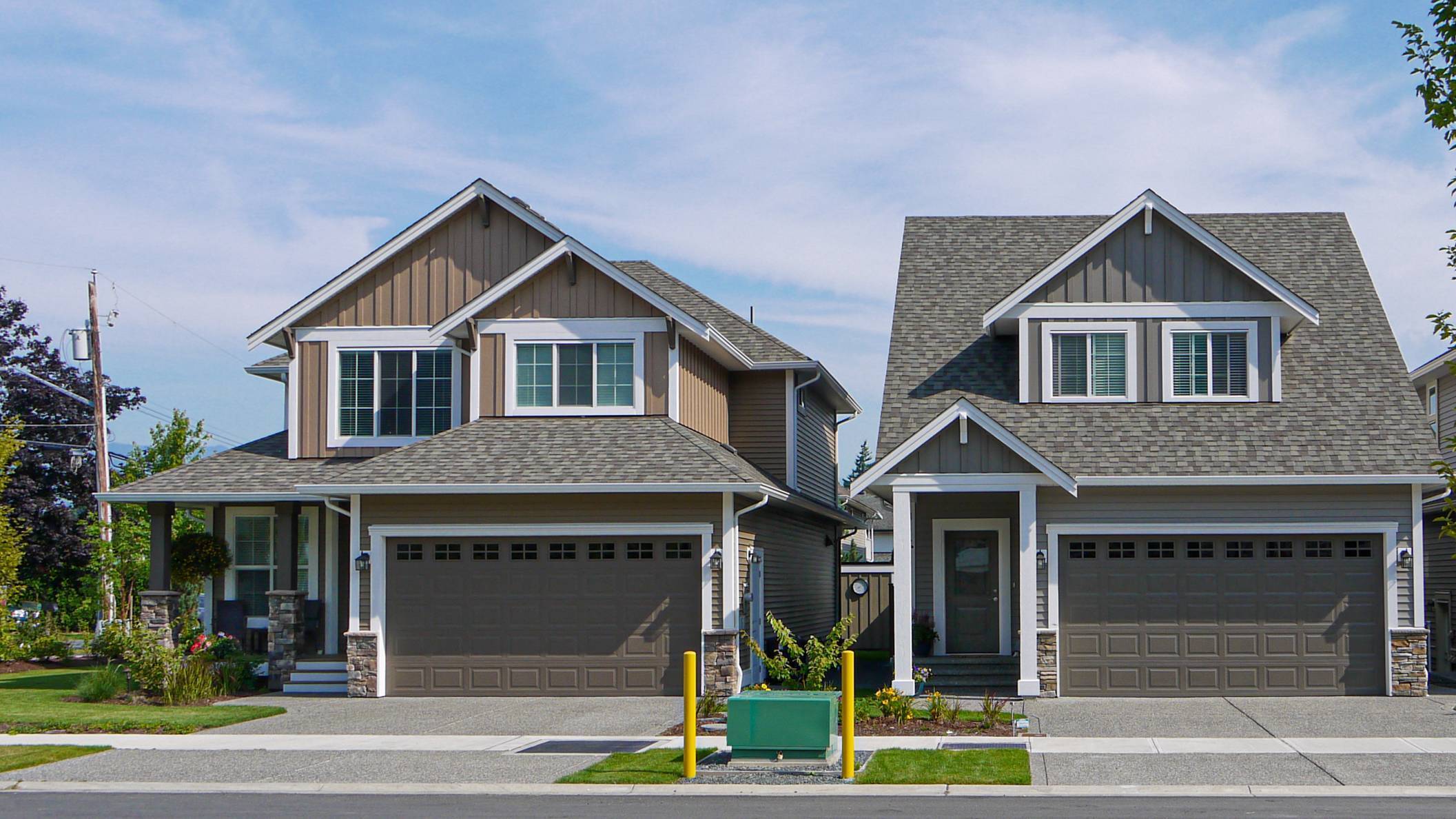
There are two primary materials to choose from when deciding on a new driveway: asphalt and concrete. Both have pros and cons, so deciding which is the better option for your home can be challenging.
In this blog post, we’ll look at some key differences between asphalt and concrete driveways, so you can decide which material is best for your needs.
What Are the Similarities?
Before we discuss the differences between concrete and asphalt, let’s discuss their similarities quickly.
Asphalt and concrete both:
- Have a gravel base made with stone and sand
- Are durable, long-lasting materials
- Can withstand significant amounts of traffic and weathering
- They can be customized to fit the needs of the home or business owner
What Are the Differences Between Asphalt and Concrete?
When deciding which material to use for your driveway project, you need to know the differences to make the best decision. While asphalt and concrete have a few similarities, they also have key differences that might sway your decision.
Let’s get into the differences between asphalt and concrete.
Cost
Asphalt has the edge regarding the initial cost of driveways. The average price for an asphalt driveway starts around $2 to $4 per square foot, while a concrete driveway typically starts around $4 to $6 per square foot.
Cost is usually significant when deciding which material to use for your driveway. Keep in mind that adding finishes, stamping, edging details, or colors can increase the cost of a concrete driveway by up to $15 per square foot.
Maintenance and Repairs
Asphalt driveways typically require sealing six months to a year after installation and then resealing every 3–5 years, which will ensure your asphalt driveway last as long as possible.
Concrete driveways, on the other hand, don’t typically require as much sealing. Sealant is applied to a concrete driveway more for aesthetic reasons rather than for longevity and durability, as asphalt requires.
Degreasers also play a role in driveway maintenance, as they are necessary to remove oil, fuel and chemical stains from concrete driveways. However, this is not as significant of a problem for asphalt.
With cracks and chips, asphalt tends to be simpler and quicker to repair than concrete. Asphalt repairs can also be hidden better than ones on a concrete driveway. Homeowners can also do asphalt driveway repairs, but a professional should do significant concrete repairs.
Durability and Longevity
Concrete driveways can last over fifty years with proper maintenance, while asphalt driveways will only last about thirty years, again requiring regular maintenance every few years.
Concrete is more durable than asphalt and can withstand more wear and tear. Concrete is the better option if you want a driveway that will last for many years, making it the best overall value. However, asphalt is initially less expensive than concrete and may be a better choice if you are on a budget, but it will require repairs and replacement quicker.
Aesthetic Appeal
Concrete can be stained, colored, tinted, etched or stamped to give it a more customized and appealing look. While asphalt driveways can be colored now, they must be rolled and compressed during installation and do not lend themselves as well to the unique finishes concrete offers.
Your Climate
Here are some reasons why asphalt can be a better choice than concrete in colder climates.
- Concrete is prone to damage from frost heaves, expansion and contraction, which asphalt is not.
- Concrete can deteriorate with salt use, whereas asphalt is not affected by the cold and does not deteriorate from salt use.
- Asphalt pavement absorbs more heat from the sun, causing snow and ice to melt much more quickly than concrete.
However, the opposite is true for living in warmer climates, and concrete tends to perform better.
- Asphalt pavement can soften, causing it to become oily, leading to problems such as skidding and aquaplaning, whereas concrete does not soften, become sticky, or create messes in extreme heat
- Concrete remains solid and durable for longer than asphalt, making it a better option for larger projects such as long driveways and roads.
- Concrete is less likely to cause accidents due to oils and other substances that can make the road surface slippery in warmer weather.
Summary of Concrete and Asphalt Driveways
Let’s summarize what we have learned about concrete and asphalt driveways, so you can clearly understand what you will get.
Asphalt
An asphalt driveway
- Is a less expensive option than a concrete driveway.
- Is a softer material, which means it deteriorates faster but is also easier to repair.
- Does not have the creative design elements that concrete offers, but is now able to be mixed to have some coloring or be sealed with color tints.
- Can provide more than thirty years of use but requires occasional resurfacing and resealing every three to five years.
For these reasons, there may be better options than an asphalt driveway for busy households with heavy driveway traffic and use, but it is cost-efficient with a clean and sleek look.
Concrete
Concrete driveways are popular among homeowners because
- They offer a durable, customizable surface with minimal maintenance for many years.
- Even if they crack in colder temperatures, there are repair kits that can fix them quickly and easily.
- They provide more opportunities for creative appearance than asphalt driveways, such as stamping them with patterns, tinting them in different colors, giving them different finishes, and engraving designs into the surface.
- Even though concrete repair can be more complex and costlier than asphalt repair, concrete is more durable and long-lasting, so total maintenance should be minimal.
When Is a Concrete Patio or Walkway a Better Choice Than Asphalt?
When deciding between concrete or pavers for your patio?, consider durability, maintenance, and aesthetics. Concrete offers a more long-lasting option that requires less upkeep. It is commonly used for walkways due to its high resistance to wear and tear. Additionally, concrete can be customized with various colors and textures to enhance the overall look of your outdoor space.
Final Thoughts

There are some similarities between concrete and asphalt, but there are also some important differences that you need to know about before choosing a new surface for your path, driveway, or storage area.
Concrete is the better option. Its primary downside is the initial cost, but when you consider it has superior durability and factor in that you will have to replace an asphalt driveway sooner, the total cost over its lifetime decreases.
Then concrete also offers customizability and creativity to match your home better or add an element of design and beauty to your home area. With its low maintenance characteristics, longevity, and aesthetic appeal, you’ll get everything you need with concrete.
If you’re in the Tulsa, Oklahoma area, Tulsa Concrete Contractor can install a beautiful, customized, and affordable concrete driveway, pathway, or storage area for your home or business.
Click below for a free in-person quote for your next custom project.

